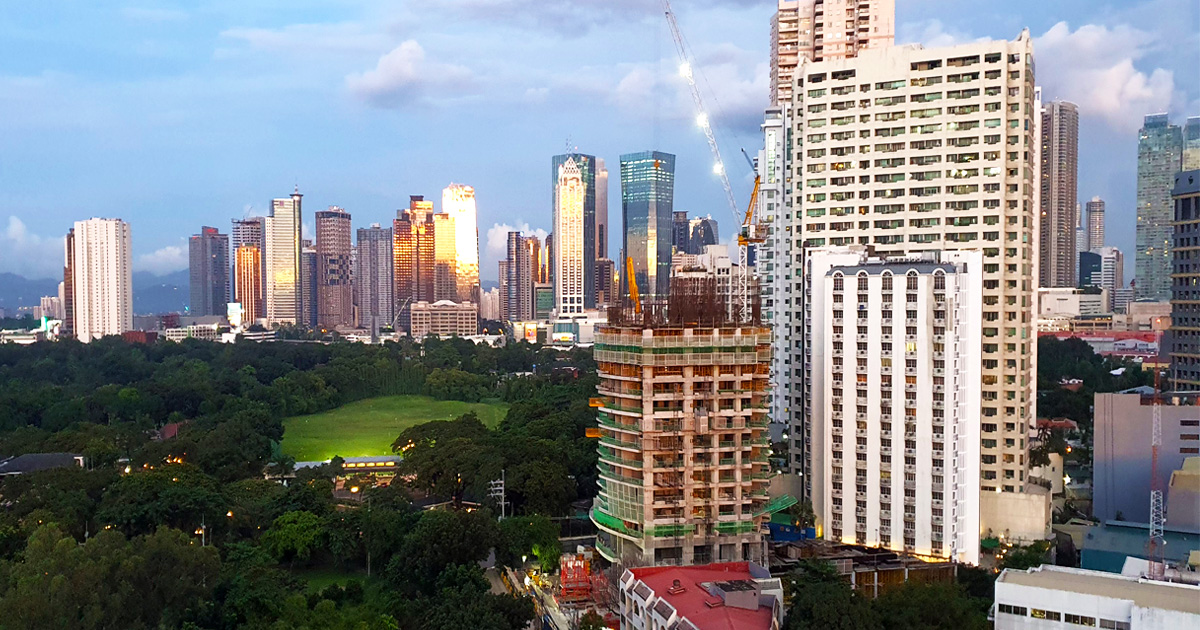The Asian Development Bank, the largest multilateral source of development financing for Asia, has recently published its update on the “Asian Development Outlook” (ADO 2021). The ADO 2021 includes data and projections to 2022 with some good news for the Philippines, despite recent concerns. Experts believe the country is well-positioned to rebound from its economic downturn following the coronavirus outbreak.
Asian Development Outlook For The Philippines In 2022
As the bank’s flagship annual publication on Asian economics and development, the Asian Development Bank publishes its “Asian Development Outlook” twice a year. One in September and the other in April. The latest update to its forecasts for the region maintains its prediction of 4.5 percent growth for this year and 5.5 percent for 2022.
Furthermore, the report quoted sustained growth in public infrastructure spending, rising consumer confidence, a firmer rebound in imports, including capital raw materials and intermediate goods, and foreseeable increases in merchandise exports, earnings from business process outsourcing, and steadily increasing remittances from Filipinos living abroad as economic recovery drivers. ADB also recognized that policy changes had been undertaken by the government. A major emphasis was the June National Employment Recovery Strategy. It focuses on excellent employment recovery, increased social protection, and aggressive labor market program initiatives.
If everything goes according to plan, then the economy should be back at its pre-pandemic level by next year. However, there are important caveats. One is the risk of the spread of contagious newer coronavirus strains. This may require the return to stricter containment and could again slow down economic activity.
Regaining Confidence Following Pandemic Effects
The report shows that the economy fell substantially in 2020, and recovery would be slow in 2021 before picking up in 2022. Uncertainty over the course of the COVID-19 pandemic will continue to have an effect on consumer and company morale, but progress on vaccine deployment will help restore confidence. Expansionary fiscal policy will continue to support development, especially in the infrastructure sector.
Like in every country, the main factor that determines the success or failure in the Philippines is how efficiently and quickly the vaccination campaign can take place. While the ADO does not always track well with vaccine coverage, there is no evidence to suggest that we are not getting vaccines where they are needed. In fact, other countries in this region, like Thailand or Vietnam, are actually having difficulties administering vaccinations. The Philippines is slightly behind due to the late start of the vaccination drive, but the data shows that it is continuing at a good pace.
Agricultural Incentives: Addressing The Need
ADB is concerned about the sharp rise of poverty that the coronavirus has wrought on both a regional and global basis. Other data shows that most of those gains in poverty reduction that were made under the Duterte administration in 2016-2019 have been erased and that poverty might be worse today than it was five or more years ago.
The Asian Development Outlook report devoted a whole chapter to the problems facing developing countries in their agriculture sector. The report states that the major challenges in this sector include climate change, water scarcity, and dependence on other sectors. The sector is a critical linchpin to many interconnected national issues, including poverty, employment, food safety, and public health. While this report does not suggest that the Philippines doesn’t pay enough attention to agricultural issues or pursue an unproductive policy, it does indicate that giving agriculture a higher priority than it has now is crucial to reaching the economic growth forecast.
Asian Development Outlook On Real Estate And Infrastructure
The property trend in the Philippines is the same as in other countries where rapid urbanization and economic growth can be seen. Since the first quarter of 2020, credit growth to companies has slowed, falling by 1.3 percent year on year in February 2021. Lending to wholesale and retail commerce, as well as manufacturing, was reduced. However, the decrease was somewhat offset by continued lending to other industries, such as real estate, transportation, and storage. Major players in the real estate industry continue to expand the Philippine real estate market in 2022.
Aside from the positive news regarding the ADO’s Wednesday briefing, it was also clear that the Asian Development Outlook does not believe that the fears of economic chaos arising from Evergrande are justified. Evergrande, China’s biggest realty developer, has seen its share price plunge more than 60% this year. The company has been in deep financial trouble after expanding rapidly in the past decade. This has been a matter of increasing concern here in the Philippines due to the large investment connections to China. But ADB’s view was that China has sufficient capital controls and resources to prevent a widespread disaster in the event Evergrande fails.
Maintaining Momentum On Positive Economic Trends
While the Philippines is still at risk, it is encouraging that Asian Development Bank has given an authoritative and positive assessment that the country is on the “right track” to recovery. The positive momentum that has been achieved must not slip under any circumstance. Regardless of who the next administration is, the country must remain focused on its mission to build a resilient nation.
